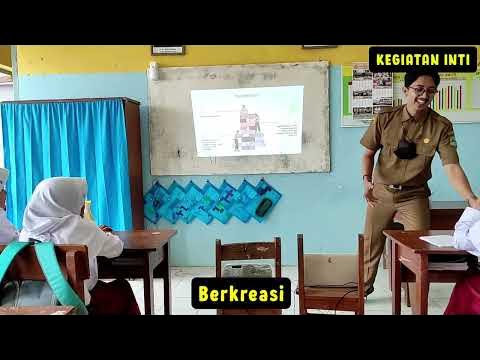Structured Academic Controversy - Collaborative Learning Video Project
Summary
TLDRThis video presentation explores Structured Academic Controversy (SAC), a cooperative learning strategy where students engage with controversial issues from multiple perspectives. The process involves researching, discussing, and reaching consensus on topics while fostering respect for diverse viewpoints. The benefits of SAC include improved decision-making, critical thinking, and collaborative skills, while also addressing challenges like participant motivation and the need for effective training. The presentation highlights research findings from two articles, emphasizing the importance of structured debate in education and offering practical implementation strategies for teachers.
Takeaways
- 😀 Structured Academic Controversy (SAC) is a cooperative learning strategy where students explore controversial issues from multiple perspectives.
- 😀 The main goal of SAC is to enhance content knowledge and foster respect for diverse viewpoints among students.
- 😀 SAC encourages the development of decision-making and problem-solving skills while discussing relevant and controversial topics.
- 😀 The process consists of four main stages: researching the issue, comparing perspectives, reaching a consensus, and debriefing.
- 😀 The technique involves cooperative debate, where groups represent opposing views and work towards a consensus.
- 😀 Teaching with controversy stimulates critical thinking, reveals complexity, and encourages deeper understanding of issues.
- 😀 The benefits of SAC include enhanced cooperation, enjoyment in learning, and improved listening and thinking skills.
- 😀 Challenges include the need for training, motivated participants, and the ability to engage in oppositional thinking.
- 😀 Feedback from implementing SAC in a university setting indicated positive outcomes, though issues arose with group size and time management.
- 😀 Effective implementation of SAC requires careful planning, including establishing protocols, time limits for discussions, and gradually introducing serious topics.
Q & A
What is structured academic controversy?
-Structured academic controversy is a cooperative learning strategy where students work in small groups to explore controversial issues from multiple perspectives, aiming to understand and appreciate different viewpoints while reaching a consensus.
What are the main goals of using structured academic controversy in the classroom?
-The main goals include helping students gain content knowledge about important issues, respect multiple viewpoints, and develop decision-making and problem-solving skills.
What are the four main stages of the structured academic controversy process?
-The four main stages are: 1) Researching the issue, 2) Comparing perspectives among peers, 3) Collaborating to reach a consensus, and 4) Debriefing to reflect on the process.
How does structured academic controversy help in teaching controversial topics?
-It allows teachers to engage students in meaningful discussions without forcing them to take sides, promoting understanding and respect for differing opinions.
What are some benefits of implementing structured academic controversy?
-Benefits include enhanced critical thinking, cooperation among students, deeper processing of information, and fostering a collaborative learning environment.
What are some challenges associated with structured academic controversy?
-Challenges include the need for trained facilitators, motivated participants, and the ability to engage in oppositional thinking.
What insights were gained from the qualitative study conducted in Ireland regarding structured academic controversy?
-The study found that structured academic controversy effectively helped students engage with complex issues, promoting active listening and a solution-based approach rather than traditional debates.
How can teachers effectively implement structured academic controversy in their classrooms?
-Teachers should establish clear etiquette protocols, choose relevant topics, allow sufficient time for research and discussion, and ensure students reflect on the process after debates.
What variations can teachers consider when using structured academic controversy?
-Variations include having students research one side then switch, reflecting on opposing viewpoints, and starting with less serious topics before moving to more complex issues.
What resources are available to help educators implement structured academic controversy?
-Resources include templates for student research, how-to videos demonstrating the process, lesson plan templates, and guides on establishing etiquette and protocols.
Outlines

Этот раздел доступен только подписчикам платных тарифов. Пожалуйста, перейдите на платный тариф для доступа.
Перейти на платный тарифMindmap

Этот раздел доступен только подписчикам платных тарифов. Пожалуйста, перейдите на платный тариф для доступа.
Перейти на платный тарифKeywords

Этот раздел доступен только подписчикам платных тарифов. Пожалуйста, перейдите на платный тариф для доступа.
Перейти на платный тарифHighlights

Этот раздел доступен только подписчикам платных тарифов. Пожалуйста, перейдите на платный тариф для доступа.
Перейти на платный тарифTranscripts

Этот раздел доступен только подписчикам платных тарифов. Пожалуйста, перейдите на платный тариф для доступа.
Перейти на платный тарифПосмотреть больше похожих видео

Pembelajaran Sejarah Kontroversial

Strategi Pembelajaran Wawancara Tiga Pertanyaan di Kelas

Matakuliah: METODOLOGI PEMBELAJARAN - Teams Games Tournaments (TGT)

Model Pembelajaran Think Pair Share (TPS) Berbasis Sosial Media

STRATEGI PEMBELAJARAN BAHASA INDONESIA 1

Il Jigsaw: cos'è e come applicarlo in classe
5.0 / 5 (0 votes)
